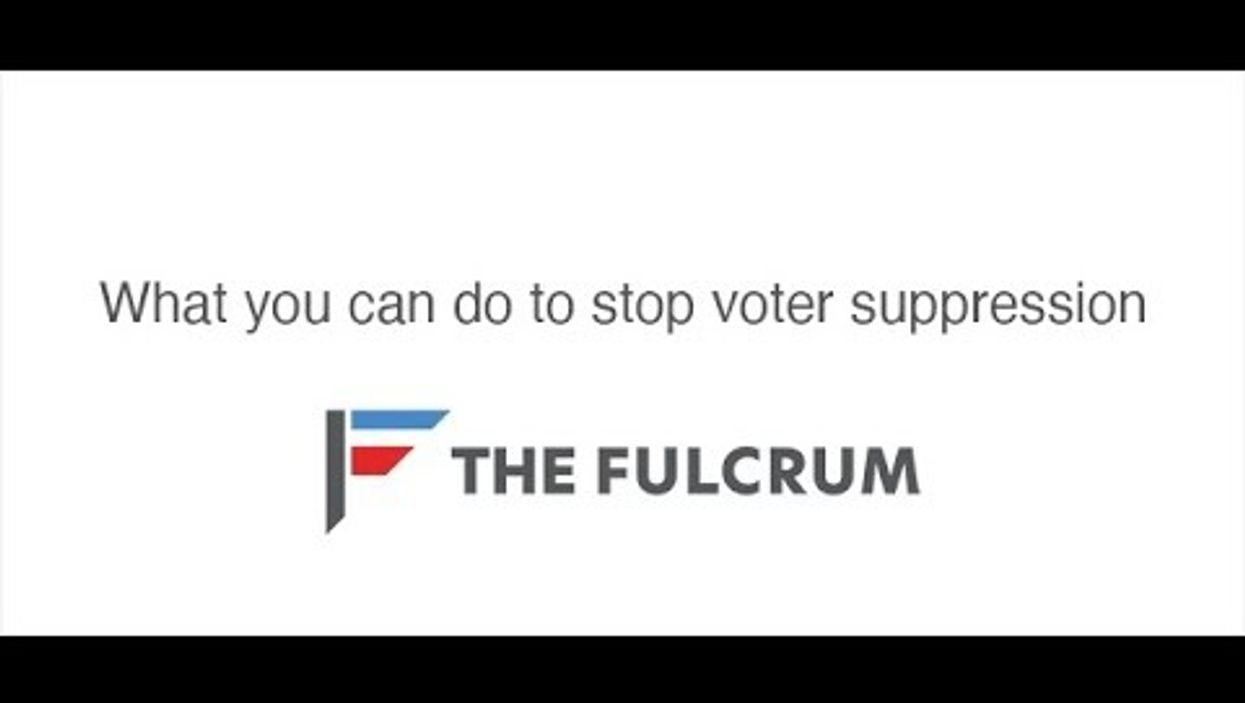When early voting got started in some states, coverage of the long lines was accompanied by stories of voter intimidation — protesters blocking access to polling places or verbally harassing voters. Social media platforms have taken steps to crack down on calls for unlawful voter interference and intimidation, and the FBI has issued warnings. But there are sure to be instances of attempted voter suppression on Election Day.
What can an individual do to stop it?
The Fulcrum convened a panel of experts to discuss how everyone can help put a stop to unlawful voter suppression and intimidation — threats to the already troubled democracy we're dedicated to covering. The Fulcrum's editor-in-chief, David Hawkings, moderated a discussion with:
What can an individual do to stop it?
The Fulcrum convened a panel of experts to discuss how everyone can help put a stop to unlawful voter suppression and intimidation — threats to the already troubled democracy we're dedicated to covering. The Fulcrum's editor-in-chief, David Hawkings, moderated a discussion with:
- Mindy Finn, CEO of Citizen Data and co-founder of Stand Up Republic
- Nsé Ufot, chief executive officer, New Georgia Project




















Trump & Hegseth gave Mark Kelly a huge 2028 gift